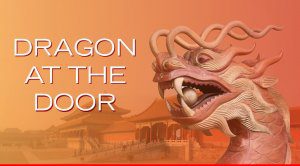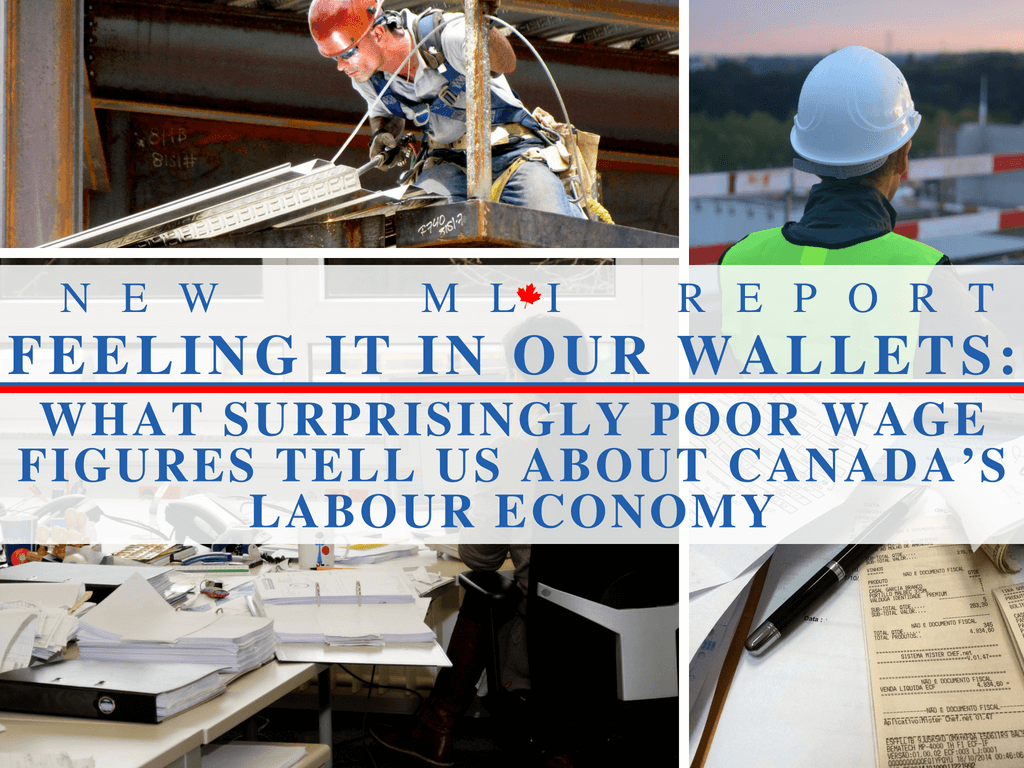 The Sino-America trade war is not a conflict between China and the US per se, but rather a war between the Chinese state monopoly and all those who oppose that monopoly, whether in China or America, writes Duanjie Chen.
The Sino-America trade war is not a conflict between China and the US per se, but rather a war between the Chinese state monopoly and all those who oppose that monopoly, whether in China or America, writes Duanjie Chen.
By Duanjie Chen, July 28, 2018
The heated trade war between the US and China has been the daily headline since early this year. Criticisms, debates, worries and anger, not least caused by President Trump’s unpredictability, are all understandable. But those in Canada who enjoyed jumping to the oversimplified conclusion that China has plenty of tools to deal with the Americans, and Trump can’t therefore get everything he wants, might soon regret their own ignorance on the basic principles of free trade.
The Chinese side was full of drama too: President Xi Jinping, not known for any cultural refinement, was heard borrowing from the Bible to tease all westerners on June 25: “In the West you have a notion that if somebody hits you on the left cheek, you turn the other cheek. In our culture we punch back.” That oral punch certainly incited his netizens to cry “tooth for a tooth.”
But three days later, Xi’s government published its 2018 Special Management Measures for the Access of Foreign Investment – a list of industries that either prohibit or heavily restrict foreign entry and investment. Notably, this list was significantly shortened. The official media hailed it as the major initiative (!) for opening up China’s market, without mentioning that this opening to investment is what Trump had demanded in the first place.
Regardless of the end result of this Sino-American trade war, I share the view of many clear-minded Chinese scholars on its essence. A recent essay (July 11, 2018) on the Financial Times (Chinese edition), by the economics professor Sheng Hong, stands out: Whose Trade War, and for What?
According to Mr. Sheng, free trade has to be a fair trade – one defined by three basic principles: firm protection of property rights, including intellectual property (IP) rights; fair competition without government interference; and free entry to all types of markets ranging from those for commodities and consumer goods to financial products and Internet access. Given that China has persistently violated all these free-trade principles to protect China’s state monopoly and its associated interest groups, the Sino-America trade war is not a conflict between China and the US per se. Instead, it’s a war between the Chinese state monopoly and all those who oppose that monopoly, whether in China or America. In Mr. Sheng’s view, the target of Trump’s tariffs is China’s state monopoly that broke the principles of free trade, and China’s retaliation is precisely to guard that monopoly for unfair trade.
To substantiate his argument, Mr. Sheng provided the following examples:
First, given the well-known fact that China has grown its state-owned-enterprises (SOEs) by suppressing both domestic non-SOE and foreign entities, Mr. Sheng is focused on China’s disregard of IP rights. On the one hand, the government uses the Great Firewall to block the free flow of data and information across the Internet, and hence suffocated private innovation, a key to generating intellectual property. On the other hand, the government’s heavy subsidies for selective industries encourage rent-seeking behaviour rather than innovation. As a result, SOEs and those with government ties are not innovators but only state procurers of IP; they have no interest in protecting intellectual property rights.
Second, on fair trade and competition: the Chinese government has persistently subsidized its SOEs – by providing them with free land, cheap loans and resource rights to ensure their collective monopoly. Such unfair subsidies, totalling $2 trillion over the period of 2003-2013, by supporting inefficient SOEs and hence suppressing more efficient private enterprises, distort resource allocation and cause unfair wealth transfer within the domestic market, which in turn spills over to the global market in the manner of unfair price competition.
I will also add that this is how China’s unfair trade has damaged and even wiped out some industries in western countries, ranging from high-speed rail and steel to furniture and solar panel manufacturing industries.
With regard to free entry to its domestic market, China has failed to fulfill its promise to the World Trade Organization (WTO) to completely open up its market to foreign investment.
Third, with regard to free entry to its domestic market, China has failed to fulfill its promise to the World Trade Organization (WTO) to completely open up its market to foreign investment. For example, China has so far restricted foreign entry to its credit card, telecommunications and film industries, despite the government’s open pledge to the WTO. Again, between 2003 and 2013, the average annual monopoly rent or profit collected by state-owned telecom companies was about $3.4 billion; for 2013 alone, Chinese state banks ripped off over $200 billion from their customers through artificially low deposit interest rates. By disallowing free entry to these industries, China is first protecting the state monopoly and hurting its domestic consumers and non-SOE companies, and then using its centralized monetary power to “go global” to grab foreign market shares.
In Mr. Sheng’s words, as long as the Chinese government is:
unyielding in its industrial subsidies, prohibition of internet free flow, restriction on market entry, and control of intellectual properties, it is protecting its state monopoly and the intertwined interest groups, violating fair-competition principle, and contradicting its own pledge on ‘letting the market play the decisive role in allocating resources’.
Therefore, the root of this trade war is China’s protection of its state monopoly. Importantly, this comes at a cost to both Chinese citizens, who are exploited by the state pricing power, and the non-state-associated business entities that are deprived of their potential profitability through fair competition. In other words, the essence of this China-American trade war is about China breaking free-trade rules – both domestically and internationally.
Mr. Sheng’s view is broadly shared among reputable Chinese scholars from various political camps, who are against China’s global expansion at the expense of Chinese citizens. Professor Qin Hui at Qinhua University coined the term “the low-human-right advantage” as early as 2006 in his speech at an international symposium. As he explained, “besides the traditional competitiveness associated with low wage and low welfare,” China’s unmatched global competitiveness is rooted in “low human rights” that provide a foundation for the government to “artificially suppress the prices of labour, land, financial funding and non-renewable resources” available to SOEs. For his far-reaching finding and prediction on China’s future and that of international order, Prof. Qin, like other independent scholars in China including the previously quoted Prof. Sheng, has been ferociously attacked by the Chinese Community Party-directed online mobs.
If Professors Qin and Sheng appeared to be stepping out of the party line in China, we may listen to another professor Sun Xiliang, who is viewed as being absolutely “politically correct” and is acclaimed online by many as the “Chinese conscience.” In his web post on July 11, Mr. Sun openly challenges those who have boldly declared that the Chinese people could bear the cost of a trade war and hence should fight it to the end. By posting the question “who should bear the cost of the trade war?” he pointed out that, over the past several decades, China’s “commercial capitalists” exported their superior products at the cheapest price to the US but sold the inferior ones to their own people at the most expensive price. They caused some of the worst environmental pollution to make profits domestically and sent the money to America. Mr. Sun therefore questioned: “Isn’t it unfair to ask our people to bear the cost of this trade war?!”
Wow, how much more sharply could he make such a statement! Except that I would replace his wording “commercial capitalists” with “state capitalists” and also note that the money that went to the US was largely for SOEs’ global expansion and also somehow flew into the pocket of state cronies.
In summary, these Chinese scholars appear to implicitly welcome the Sino-America trade war in the hopes that it will stop their government’s wasteful state subsidies, infringement on property rights, particularly IP rights, and violation of fair market competition. Their ultimate goal is for their people to benefit from a truly free trade between China and the world. Therefore, we need to be mindful not to be fooled by a habitual rule breaker (China) simply because of our distaste of Trump’s many personal flaws.
President Trump might be gambling in his trade war against China, and his behaviour in other areas has been as uncertain as it is baffling. But his approach to China has been on much firmer ground. In this area, his goal has been as clear as it is laudable: a more balanced trade relationship with China by getting that country to truly open up and follow the rules of free trade. Like all the true free-trade believers in China, I wish him luck for the sake of Chinese people, and for the sake of us all.
Duanjie Chen is a Munk Senior Fellow at the Macdonald-Laurier Institute.





